Grants can be a great tool for helping farmers take their business to the next level. But, be warned the grant writing process is not easy. My most recent grant applications clocked in over 80 hours (likely more) of time doing planning and writing for the grants, which together were over 100 pages!
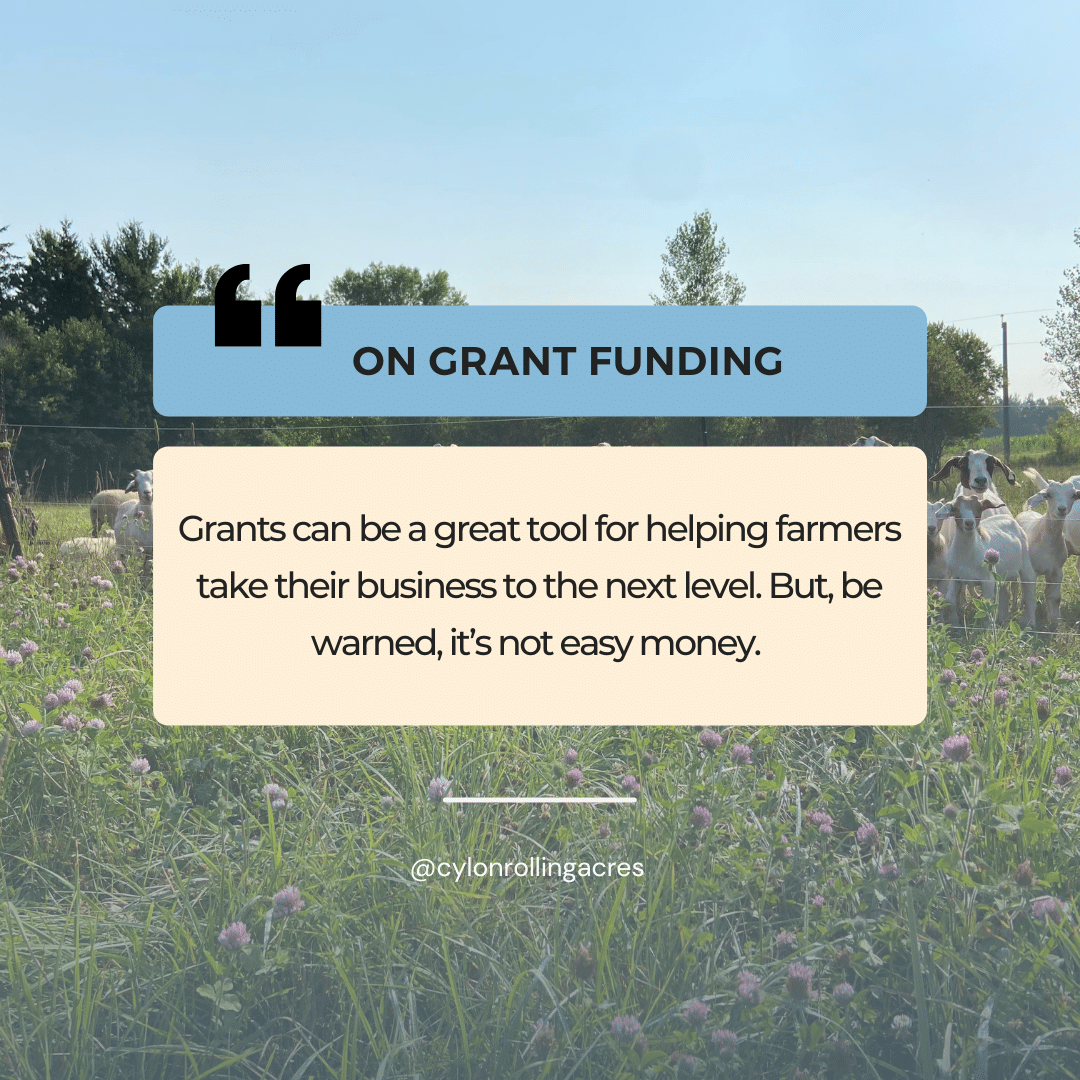
Even still, these funding opportunities for your farm can pay off big time. For our farm it has translated to a refrigerated trailer for hauling our meat, portable electric fence, and now a large marketing project.
While a lot of grants are designed to help new farm business owners, most are not for getting up and running. Most grants want to know you’re in it for the long haul and want to see some skin in the game. This means an operational farm. Typically, at least a year underway, or proof you’ve demonstrated experience working in a similar field elsewhere. If the grant is about supporting the growth of your business, you need to be able to demonstrate how you’re growing already. Of course, this doesn’t mean there aren’t grants for fresh ideas yet to start, but this is typical for most grants.
And, hopefully, if you secure a grant be prepared to do the work (executing and the paperwork that goes with it). Most grants will have some type of accountability follow up and they will vary from being very stringent to just a summary of a project report.
Sometimes the funding you might need to get started will come from a traditional route than grants this may include working with USDA Farm Service Agency (FSA) for beginning farmer loans (every county should have FSA staff you can contact to have an initial conversation about your projects/plans) or working with your local farm credit agency in my case it’s Compeer Financial help you get off the ground and started with financing, whether it’s a short-term loan, line of credit, or even a real estate loan.
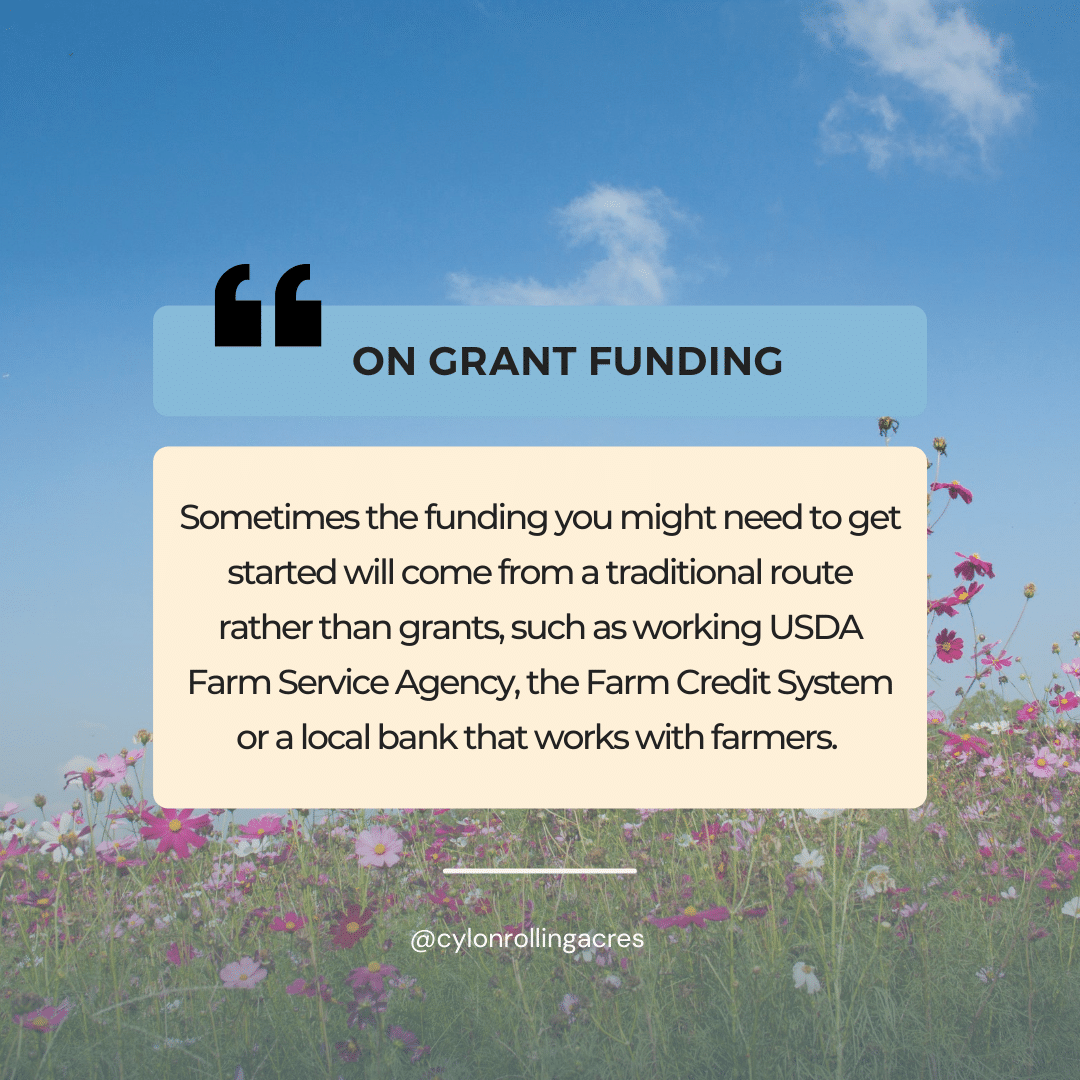
If you’re in the early stages of your farm a good place to start is thinking about your long-range plans and keep in mind what type of grant opportunities might be a fit for you down the road as you start to get established
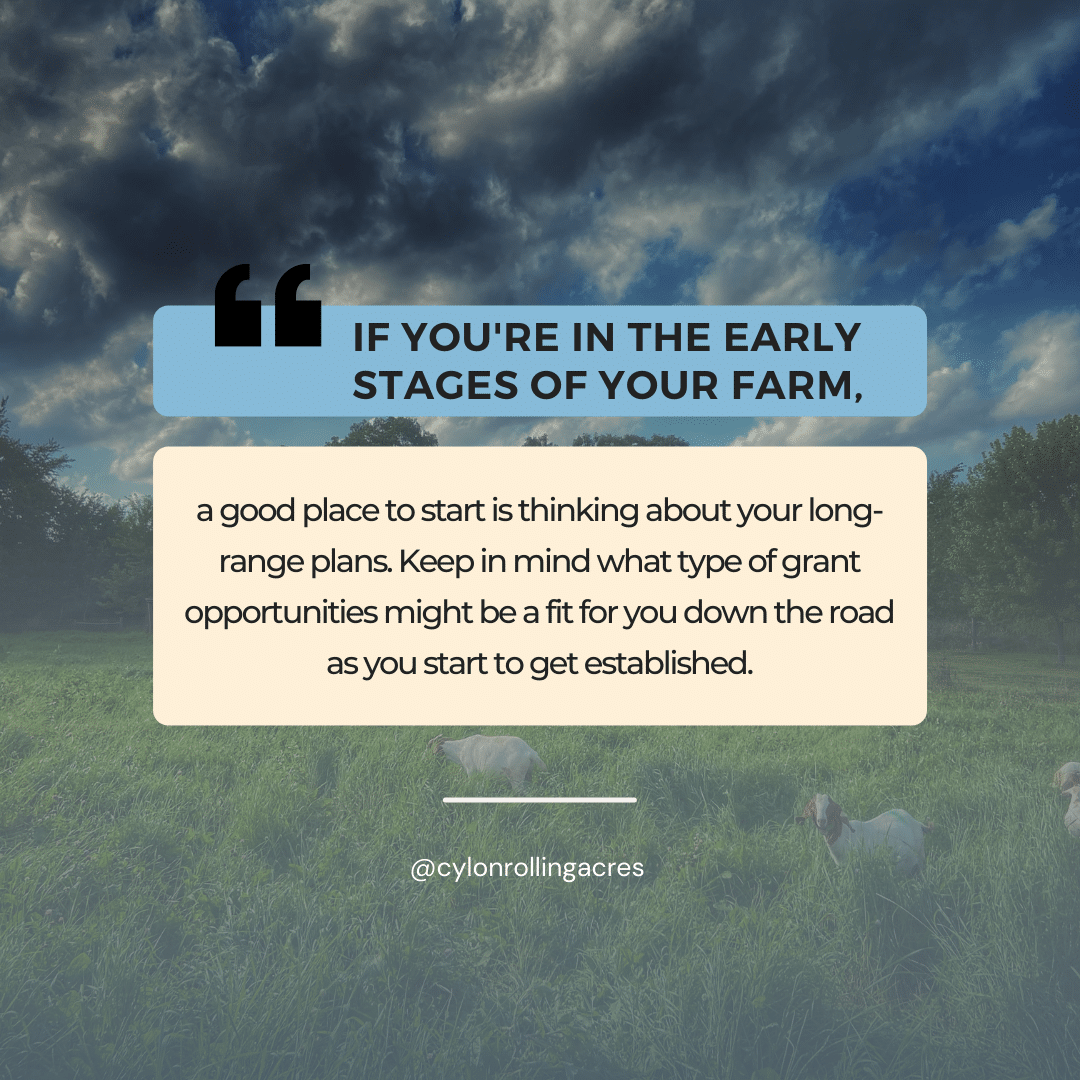
Tips for writing grants for your farm
- Sound farm business plan or project plan that reflects the grant objectives. Sometimes this means you may need to apply for a grant for a part of a project and tailor that application to that need vs. submitting the whole plan or components that don’t fit the objectives of the grant program.
- USDA rural development office staff can be a useful resource to know about programs that might be a fit for your farm and goals
- Conservation grants or cost-share programs (such as through USDA NRCS and county conservation offices) can be helpful for implementing different farming practices or setting up infrastructure for farming practices with conservation in mind
- It’s OK to have one big project that you apply for different grants to help meet that project but make sure that each application is tailor to the grant requirements and objectives that means you may need to adjust your overall plan to fit that need as well as edit your budget to make sure it does not include items that are not included
- Make sure you meet the requirements of the grant and do not include things that are not funded. In most cases if you do not meet the basic requirements of what the application is asking, is incomplete, or includes extra items, it may not even be reviewed. Basically follow the directions!
- Build a sound budget know what you were going to spend money. Get estimates. Talk to other people who are doing similar things to help get ideas on potential vendors and other items to consider.
- Use your network to help you build out your budget and project plans. I’ve used other farmers, former marketing colleagues, and classmates from the M5 Small Business Accelerator program as resources
- Use small business centers to help with a grant application process. For example, we used the Small Business Development Center at the University of Wisconsin-River Falls, a local state school, to help us build a business feasibility study that was required for a grant application. In many cases some of these services are low cost or even free.
- If you don’t have grant writing or writing experience in general look for someone who could help you with that side of your application. You will still need to do the bulk of the work in terms of planning, sketching out your project and its objectives; probably even drafting your application. Getting someone to help you proofread and make sure your application is matching what the grant is looking for that can go a long way. You don’t necessarily have to have a formal grant writer, just someone with good writing experience and background also be useful as well.
- Many grants will not help find equipment that doesn’t mean they don’t exist but they’re not as common.
- If you’re in the early stages of your farm a good place to start is thinking about your long-range plans and keep in mind what type of grant opportunities might be a fit for you down the road as you start to get established
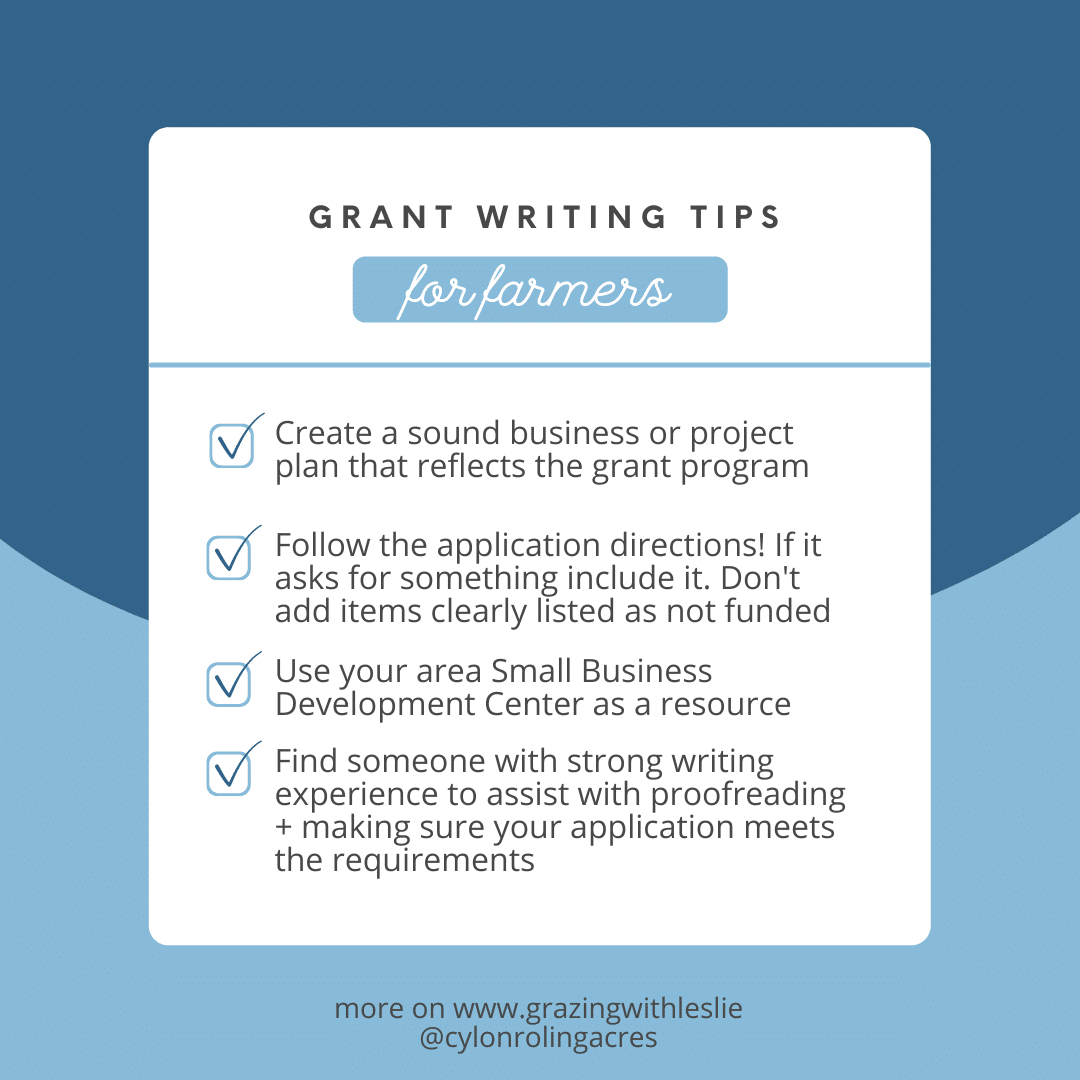
Related posts
About the author
This article was first published October 6, 2021.
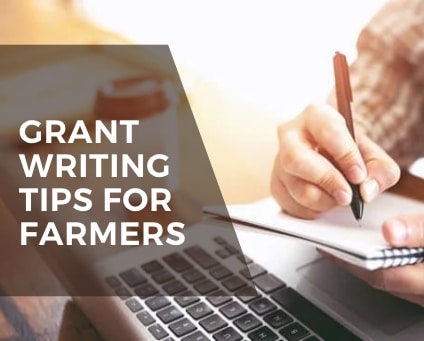
[…] Once you have a list of grant opportunities, you’ll then want to make sure you spend time applying for the grants. To submit a quality grant application you’ll need to focus on putting together a strong case for why your farm and project is qualified to receive the grant. You can’t pull this together the night before like you might have done with a high school or college term paper. Learn more on it’s how to apply for farm grants in this blog post here. […]